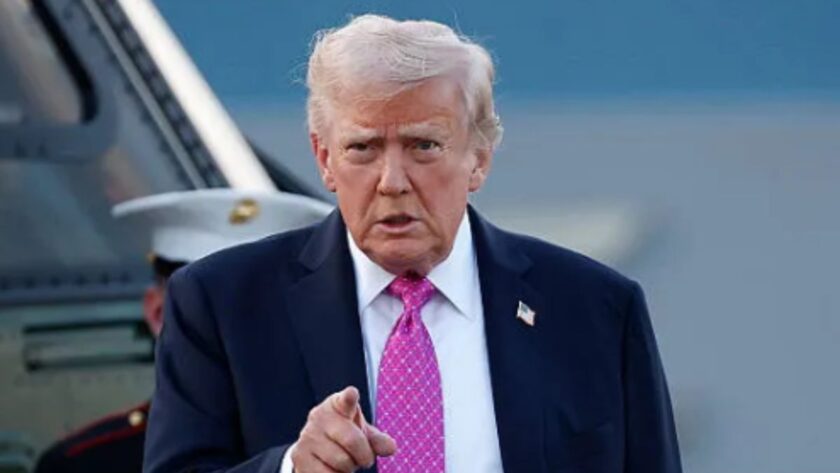Trump focuses on affordability as households struggle with persistent inflation.
President Donald Trump has rolled back tariffs on more than 200 imported food items, including beef, coffee, bananas, oranges, tea, cocoa, spices and several tropical fruits. The executive order was signed on November 14 and marks a major reversal in the administration’s long-standing tariff approach. The move aims to ease the financial strain on households struggling with elevated grocery prices.
Trump confirmed the decision during a conversation aboard Air Force One. He mentioned a “rollback on some foods like coffee” and acknowledged that tariffs might have contributed to higher prices in certain cases. This admission reflects a shift from his earlier stance, where he defended tariffs as harmless to consumers.
Political Pressure and Voter Sentiment Influence the Decision of Trump
The rollback comes after recent off-year election results that highlighted growing voter frustration with the cost of living. Democrats claimed unexpected gains by focusing on inflation and everyday affordability issues. The White House appears to be responding to this sentiment by taking measures that directly affect grocery bills.
New trade framework agreements with countries such as Ecuador, Guatemala, El Salvador and Argentina helped clear the way for the tariff changes. These agreements made some previous duties unnecessary, strengthening the administration’s case for adjusting its policy.
Targeted Goods Play a Major Role in Household Spending
Many items included in the rollback, such as coffee and bananas, are not produced in significant quantities within the United States. Tariffs on these goods provided little support to domestic agriculture yet raised import costs that ultimately reached consumers.
Products previously faced duties ranging from 10 percent to more than 50 percent under the now-scrapped “reciprocal tariffs” programme. Lifting these charges has the potential to reduce prices at supermarkets if distributors and retailers pass on the savings. Industry groups have already expressed support, with the Food Industry Association calling the decision an important step toward stabilising supply and easing pressure on shoppers.
Consumer Relief Expected Despite Certain Challenges
Many Americans may begin to see some relief on items like beef, coffee and fruit. Even so, domestic producers could encounter new challenges, especially beef ranchers who may face increased competition from international suppliers.
Economists point out that tariffs are only one piece of the inflation puzzle. Costs related to labour, fuel, packaging and transportation continue to influence final retail pricing. The rollback may help ease grocery costs, but broad inflation pressures remain present.
Impact on Global Trade and Future Policy Moves
The change is likely to benefit trade partners across Latin America, Africa and other regions that supply the United States with key food imports. Lower barriers could strengthen commercial ties, expand export opportunities for partner nations and reshape future trade dynamics.
Many analysts believe this shift may open the door to further tariff adjustments. Public perception of economic conditions remains a critical priority for the White House, and additional moves could follow if grocery prices stay high.
Frequently Asked Questions (FAQs)
- What prompted the tariff rollback?
Growing frustration among voters regarding high grocery prices influenced the administration’s decision. Election results indicated that economic concerns were becoming central to public opinion.
- Which imported goods are included in the rollback?
More than 200 items are affected, including beef, coffee, bananas, oranges, tomatoes, cocoa, spices, tea and certain fertilizers.
- When will consumers see lower prices?
Price changes depend on how quickly importers, distributors and retailers adjust their costs. Some reductions may appear soon, though not all items will drop immediately.
- How might U.S. farmers be impacted?
Domestic producers, particularly in the beef sector, may face stronger competition from lower-cost imports. The impact will vary depending on market conditions.
- Could more tariffs be lifted in the future?
Further changes remain possible as the administration continues to assess inflation, trade agreements and public demand for economic relief.
